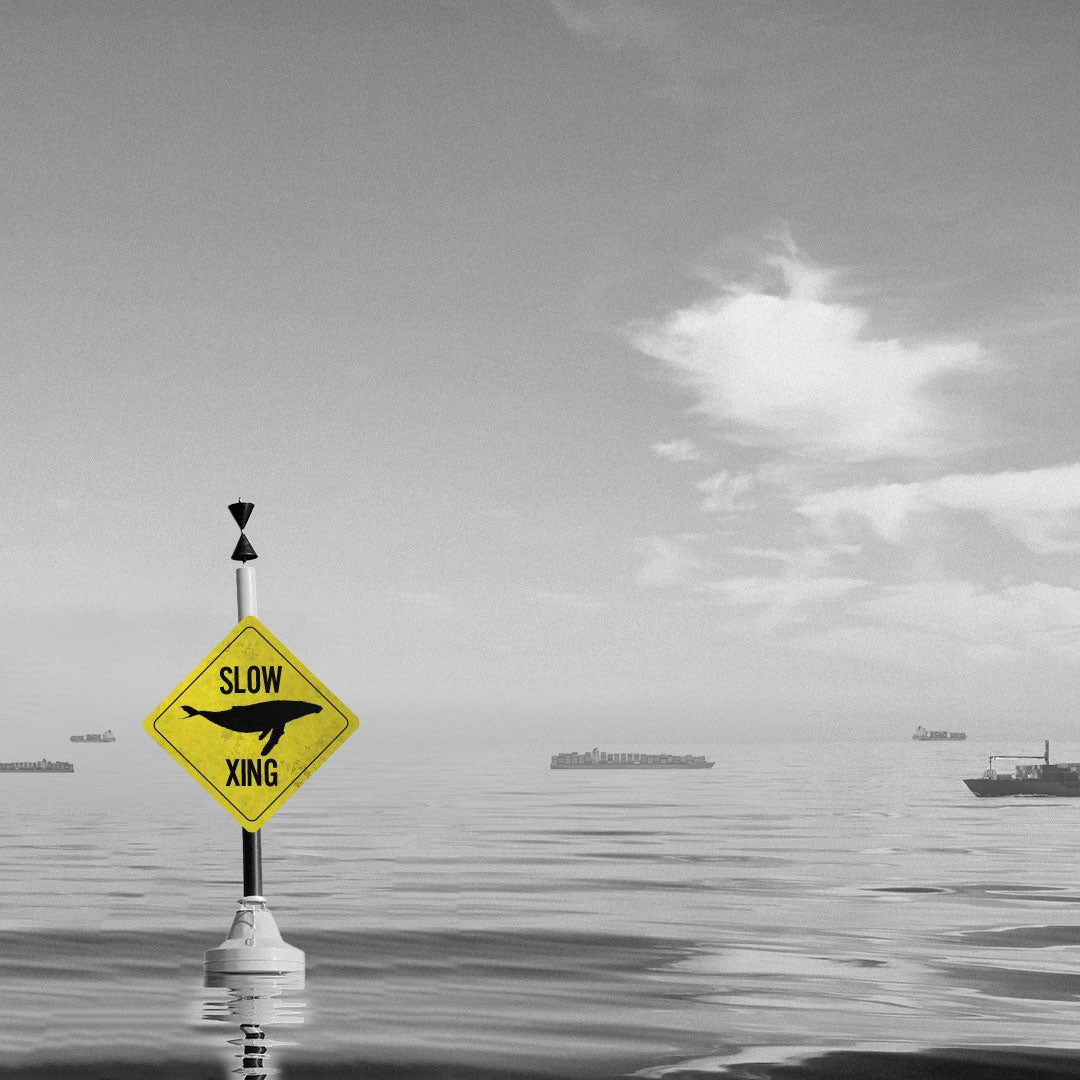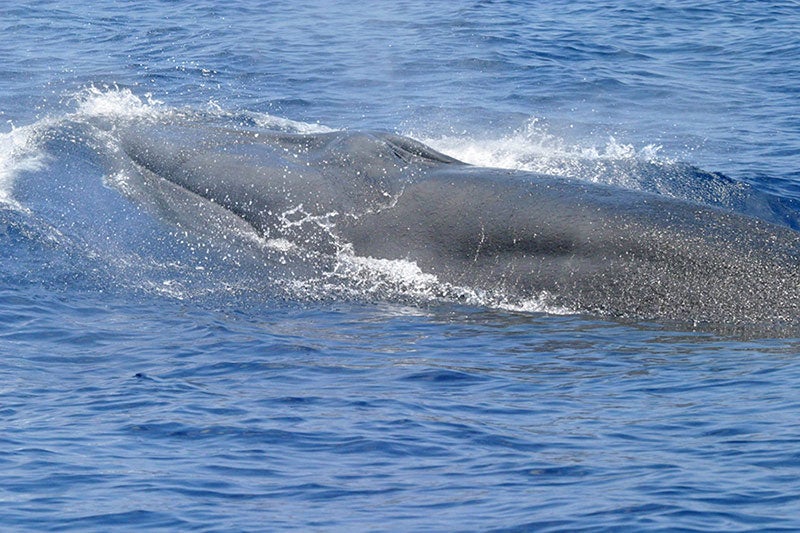We Need To Slow Down for The Rarest Whales on Earth
The federal government wants public input on whether to set a new maritime speed limit to protect the Gulf of Mexico whale.

This page was published 2 years ago. Find the latest on Earthjustice’s work.
Sandy Key, a tiny Gulf of Mexico island off Florida’s Everglades National Park, is a good place to spot the strikingly pink, flat-billed shorebirds called roseate spoonbills. But in January 2019, something unexpected landed on the spoonbills’ quiet beach. A 38-foot whale carcass washed ashore, beginning a marine science odyssey that’s still reverberating.
The Discovery of a New-to-Science Whale
This whale, it would turn out, is a new species to science. Researchers had been assembling puzzle pieces of this mystery for years, and in 2021, they confirmed it: The Gulf of Mexico has a distinct, and very rare, species of resident whale.
The Gulf of Mexico whale, also known as the Rice’s whale, is now one of the most endangered species, with as few as 51 remaining on Earth. Scientists had thought these were just a population of the endangered Bryde’s whale. But further sleuthing by researchers across the globe – and careful study of the whale carcass that landed on Sandy Key – revealed the new-to-science species.

A Gulf of Mexico whale, one of the most endangered whales in the world. (NOAA Fisheries)
Protecting the Gulf of Mexico Whale
In our oceans, as on land, the web of life is unraveling due to human activities. But given a chance to regenerate, recovery of the species and ecosystems is possible. Earthjustice is working on several fronts to restore abundance to our oceans including ending harmful maritime industry practices.
In the case of the Gulf of Mexico Whale, we’re calling to slow down boats. Since the Gulf of Mexico whales spend time hanging out within 50 feet of the water’s surface, they are especially at risk for ship strikes.
Once the Gulf of Mexico whales became federally protected as an endangered species, Earthjustice joined with partners to push for speed limits to slow down ships in places where the whales are most frequently spotted.
In May 2021, Earthjustice joined the Natural Resources Defense Council, Healthy Gulf, the Center for Biological Diversity, Defenders of Wildlife, and the New England Aquarium in filing a petition calling on the National Marine Fisheries Service to set a 10-knot speed limit for vessels transiting the whales’ habitat.
At the time, most documented sightings were around the DeSoto Canyon about 60 miles off Pensacola, Florida. But more recent studies have confirmed that the whales are also persistently found in a rainbow-shaped band that stretches from Florida across the northern Gulf all the way through Texas – underscoring the urgent need for wider protections from vessels.
Speak Up for the Whales
In response to the petition, the National Marine Fisheries Service is now accepting public comments on setting a new slow-speed zone.
Slowing down for Gulf of Mexico whales is a key protection needed – but it’s not the only one. Offshore drilling also threatens the whales’ survival; permits for oil and gas drilling and seismic blasting should also include protections for these whales. In October 2022, 100 scientists warned in a letter to the Biden administration that unless protections are increased for the Gulf of Mexico whale, we could see the first human-caused extinction of a whale species in history.
Earthjustice’s Oceans Program uses the power of the law to safeguard imperiled marine life, reform fisheries management, stop the expansion of offshore oil and gas drilling, and increase the resiliency of ocean ecosystems to climate change.